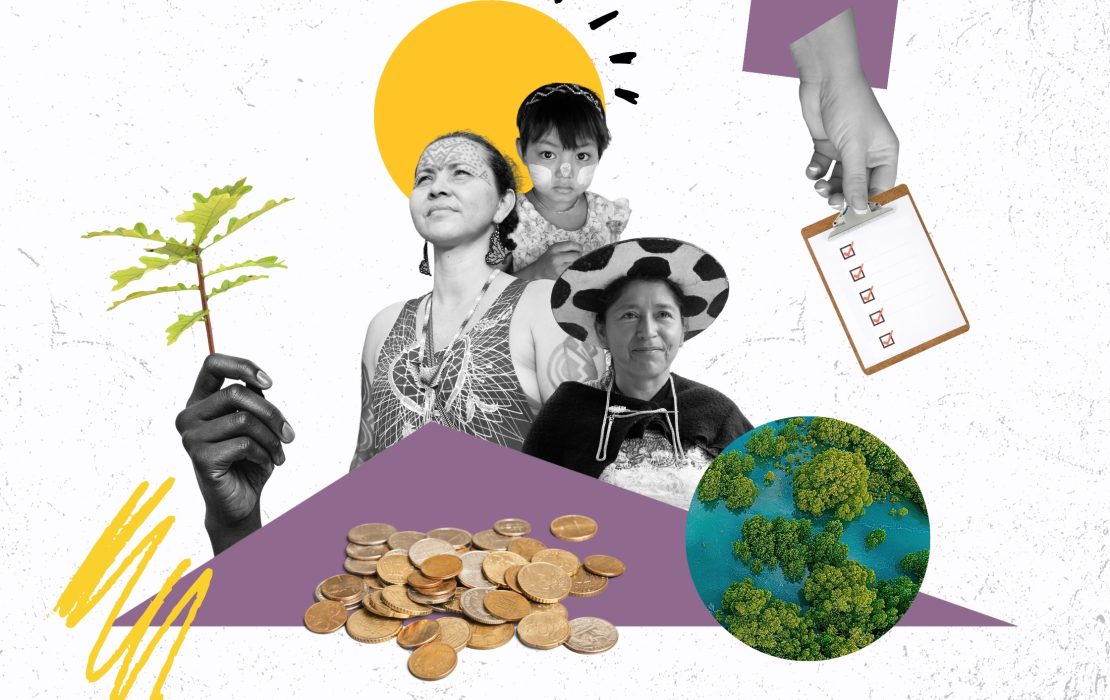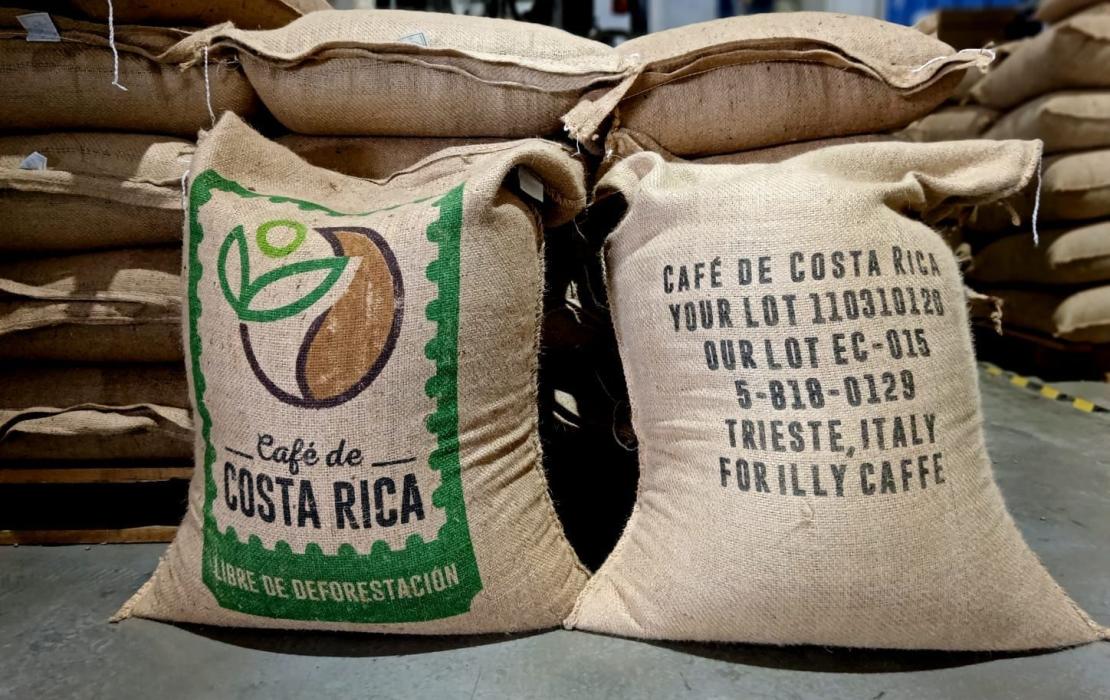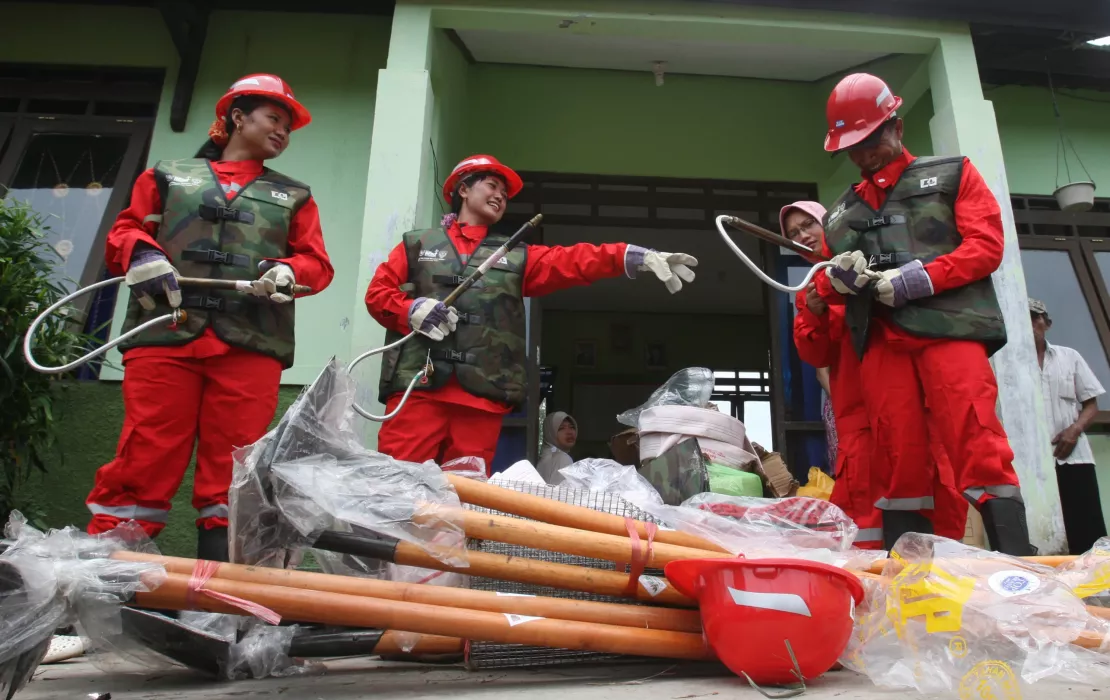Photo: Roy Prasetyo / UNDP Indonesia
Halting and reversing deforestation and forest degradation is critical to tackling climate change and achieving the goals of the Paris Agreement. However, despite tangible progress, the first Global Stocktake revealed that a lot remains to be done to safeguard these vital ecosystems.
The REDD+ (Reducing Emissions from Deforestation and Forest Degradation) framework plays a pivotal role in this advancing work in this area, especially for tropical forest countries whose national climate plans, or Nationally Determined Contributions (NDCs), hinge on its success.
Since 2007, many tropical forest countries have developed National REDD+ Strategies and Action Plans. They have also strengthened their National Forest Monitoring Systems, set baselines for the forest sector, introduced safeguards and ensured there are information systems to track how these safeguards have been implemented as part of their REDD+ strategies. Furthermore, some countries have produced reports of their performance against the baselines established earlier, allowing them to receive payments based on their results.
Results-based payments are a financing tool designed to reward countries for measured, reported and verified emission reductions. Under REDD+, tropical forest countries can receive payments once they demonstrate measurable progress in reducing deforestation or enhancing carbon stocks.
However, while this model has shown promise, countries face persistent challenges in fulfilling their potential. Payments are often too low compared to the real costs of sustaining results and investment strategies are not always tailored to country contexts. Moreover, to ensure benefits reach local communities, flexibility and robust social and environmental safeguards are needed.
Improving how results-based payments function is therefore critical for tropical forest countries, both for advancing climate action and supporting sustainable development. Here are three recommendations that can help with that:
Mobilize more climate finance for REDD+ results
Results-based payments have enabled tropical forest countries to accelerate climate action. Yet, these payments should only be the beginning. The exact direct and indirect costs of maintaining and increasing forest cover are challenging to account for. But we know they are higher than what’s being currently offered, because results in this sector are only evident over longer periods of time. Encouragingly, in October 2024, the Green Climate Fund (GCF) increased its rate for results-based payments from US$5 to $8 per tonne of greenhouse gas emissions, measured in carbon dioxide equivalent (CO₂eq) removed from the atmosphere. It is an improvement, but still far below the real costs tropical forest countries must bear. Unless better and more equitable pricing of REDD+ results is available – together with broader climate finance options – the full potential of the sector to mitigate climate change will not materialize, even if it is one of the most cost-effective solutions at hand. An emerging opportunity is the Tropical Forest Forever Facility, expected to be formalized at COP30 in Brazil, later this year. This bold initiative, led by countries in the Global South, aims to create a $125 billion sustainable investment fund that rewards tropical forest countries for conservation efforts, with at least 20 percent of funds directed to Indigenous Peoples and local communities.
Contextualize investments for long-term REDD+ results
Early experiences with results-based payments reveal a key lesson: a one-size-fits-all approach doesn’t work. To sustain REDD+ results, countries must tailor strategies to specific contexts and goals, whether reducing deforestation or enhancing carbon stocks. It requires strengthening the institutions that implement REDD+ programs, including robust measurement, reporting and verification (MRV) systems, clear rules for managing funds, enhanced data-sharing and strong governance frameworks, to ensure performance-based finance is effective and inclusive. This means the next generation of REDD+ investment and action plans must reflect lessons from the ground. It also means that institutional coordination, particularly in decentralized systems, needs ongoing support. Capacity building helps countries navigate diverse funding standards, enabling access to both market-based and non-market-based finance without compromising safeguards. Flexible financing tools, such as grants, loans and milestone payments, can address upfront cost barriers, while equity-focused mechanisms ensure meaningful participation by women, youth, and Indigenous Peoples. Aligning national, subnational and local priorities remains complex but critical. Moreover, institutions managing REDD+ work are taking on more responsibilities – disbursing payments, running benefit-sharing schemes, maintaining registries and ensuring safeguards. Many are also preparing to access other climate finance mechanisms, including market-based options. These evolving roles require continued investment in capacity and systems to ensure these institutions can function optimally.
Ensure REDD+ results contribute to broader social impact and equity
Aligning REDD+ finance with national priorities and ensuring it reaches communities on the ground can be challenging. The performance-based payment approach has emerged as a flexible, inclusive tool to do just that, especially when combined with robust social and environmental safeguards. They allow countries to channel funds into programmes that not only generate REDD+ results but also support broader development goals such as enhancing livelihoods, promoting gender equality and advancing Indigenous Peoples’ rights. Results-based payments reward verified outcomes, like emissions reduced or forests conserved, while performance-based payments can also support progress in key actions and systems, such as monitoring, safeguards, and governance, even before final results are achieved. Together, they ensure accountability while enabling flexible, sustainable investment. For example, in Costa Rica, funds from performance-based payments were reinvested in the national Payment for Ecosystem Services (PES) and forest fire management, providing direct payments to landowners and smallholder farmers for conserving forests, which strengthens local livelihoods and ensures equitable participation In Indonesia, they were used for social forestry, the rehabilitation and conservation of mangroves and coastal forests, as well as forest fire management, creating opportunities for Indigenous Peoples and local communities to participate in forest management and benefit economically. Meanwhile, in Ecuador, efforts were directed toward reducing deforestation, increasing forest cover, and enhancing the management of conservation areas, with co-benefits for community engagement and equitable resource access. Each country tailored the investment to its own context and NDC goals, illustrating how performance-based payments can deliver both tangible REDD+ results and broader social impacts, including enhanced equity and inclusion. These successes are inspiring broader use. Some countries are now exploring performance-based payments to revitalize rural areas, support land-use regulation, and expand payments for ecosystem services to cover a wider range of environmental services.
Improving results-based payments is essential for enabling tropical forest countries to deliver stronger climate action while advancing sustainable development. Better financing, contextualized investment and greater focus on reaching and benefitting communities will help maximize REDD+ impact and ensure benefits are shared equitably. As UNDP, we continue to work with countries to strengthen these systems and ensure that REDD+ contributes fully to global climate goals.
*
UNDP is a key enabler of performance-based climate finance worldwide, with extensive experience on climate mitigation in the forestry and land use sector. Its role spans technical assistance, policy development, project implementation and global knowledge exchange, delivered mostly as a partner of the UN-REDD Programme.
The reflections in this blog draw on discussions at the South-South Exchange on REDD+ Results-based Payments, hosted by Indonesia from 30 September to 3 October 2024. The event brought together representatives from Brazil, Cambodia, Costa Rica, the Democratic Republic of Congo, Ecuador and others to share knowledge and experiences.



